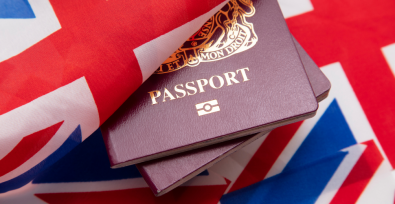U.N. Special Rapporteur on contemporary forms of slavery Tomoya Obokata, recently warned the U.K. government that by failing to investigate “clear indicators of forced labor” in its seasonal worker scheme, they may be in breach of international law. As reported by The Bureau of Investigative Journalism, (TBIJ) reports of intimidation, threats, sexual harassment, and poor living conditions by people working on U.K. farms left Obokata “very concerned.”
Seasonal worker scheme “plagued by allegations of worker mistreatment”
NGOs, government inspectors as well as a recent parliamentary inquiry and an investigation by TBIJ found systemic bullying and abuse on multiple farms in the U.K. On top of these findings, in a separate investigation from October of 2023, TBJI uncovered hundreds of allegations from seasonal workers of threats, wage theft, and racism that the U.K. Home Office had failed to investigate.
Obokata said:
“If the U.K. government is not properly conducting labor inspections, identifying abuse and holding perpetrators to account that is a clear breach of an international human rights obligation.”
Seasonal workers have been brought in under this scheme since 2019 to address existing labor shortages that were only expected to worsen post-Brexit. Expanding rapidly since then, from 2,500 in 2019 to 55,000 in 2023, the scheme offers workers a temporary six-month visa. However, it’s clear from the reports that protections needed to stop labor exploitation have not kept pace with the program’s expansion.
UK scheme creates power imbalance
Canada has a similar temporary visa scheme for agricultural workers also plagued by challenges. In his study of the Canadian scheme, Obokata said it was “a breeding ground for contemporary forms of slavery.” However, the Canadian scheme differs as the government only recruits workers from countries that it has a written agreement with. That means, while Canada’s system still isn’t great, it is better regulated.
Obokata stated:
“Even one victim is a very serious issue for me. So, I think these instances of investigations and findings raise serious alarm.”
The way the U.K. scheme is organized, private sector recruiters end up with “enormous power” as they are paid by the farms. It is up to these recruiters, called scheme operators, to decide where the workers are sent, meaning workers are extremely dependent on them. This dependence may mean workers are less willing to speak out when they experience abuse. And even when they do speak out, at one farm it took two months for workers who reported exploitation to be interviewed. That lag time is unacceptable for those working under modern slavery. Freedom United demands the U.K. Home Office do more to ensure migrant workers are protected from exploitation and abuse. Sign the petition and join us in calling for safe migration for all.







Freedom United is interested in hearing from our community and welcomes relevant, informed comments, advice, and insights that advance the conversation around our campaigns and advocacy. We value inclusivity and respect within our community. To be approved, your comments should be civil.
Outrageous & unwarranted exploitation.Farmers and the Home Office must do more to protect workers not just for the justice they deserve but to keep the reputation of British farmers & food.